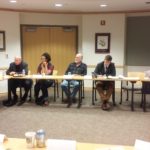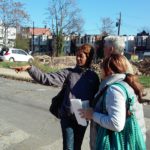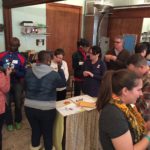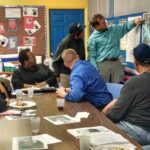Location: Chesapeake Bay Watershed| Client: Chesapeake Bay Funders Network | Project Date: May 2015 – September 2016
Project Images
Links and Resources
Project Description
Situation
Watershed organizations across the Chesapeake Bay region are leading cutting edge efforts to restore local watersheds and cleanup the Chesapeake Bay. However many of these organizations are realizing they need more training and support to meaningfully engage low income communities and communities of color in watershed work. The Chesapeake Bay Trust (CBT) and the Chesapeake Bay Funders Network (CBFN) recognized that their members have an opportunity to improve watershed health and local quality-of-life by developing partnerships in underserved communities. CBFN enlisted Skeo to support three watershed organizations in building their capacity to develop non-traditional partnerships and reach underrepresented communities.
Solution
Skeo convened with each watershed organization to understand the challenges that the organizations had experienced in building non- traditional partnerships and their goals for the capacity building pilot assistance. As a result, each watershed organization developed an approach to their capacity building work that was unique to their challenges, priorities and goals. Skeo provided technical assistance, capacity building trainings, neutral facilitation of community meetings, and personalized coaching to support these goals.
Outcome
Technical assistance provided through the pilot projects allowed the watershed organizations to build capacity to engage underserved communities. Pilot project successes include:
- West Virginia Rivers Coalition: WVRC engaged key community leaders in planning for and designing public forums to involve the broader community in water source protection planning. WVRC staff learned how to engage decision-makers in the public forum process more effectively and designed culturally appropriate outreach materials to advertise the meetings.
- Blue Water Baltimore: Staff participated in a Building Cultural Competence training to build staff knowledge and skills around cultural competence and immediately applied the learnings to build deeper relationships with community leaders involved in the Deep Blue project. When community leaders identified the need for stronger collaboration between community factions, BWB hosted a Collaborative Problem- Solving training to build capacity between community leaders. The training provided the space for community members to discuss how they could work together and how Blue Water Baltimore could support community efforts.
- South River Federation: SRF collaborated with local community leadership to design a community forum and identify local needs, such as access to jobs and open space, that could be integrated into creek restoration and other watershed initiatives. As a result, SRF built a partnership with a local youth workforce development program and provided paid environmental landscaping jobs for high school youth throughout the summer. These two organizations are now working on a long-term partnership to support youth in developing an environmental science career track.
Skeo is developing a Lessons Learned report that captures the key turning points for each pilot and collective lessons learned that will be shared with partner organizations across the Trust and throughout the Chesapeake Bay watershed as a model for how watershed organizations can shift their programming to meet the diverse needs of underserved communities while broadening support for watershed stewardship.






